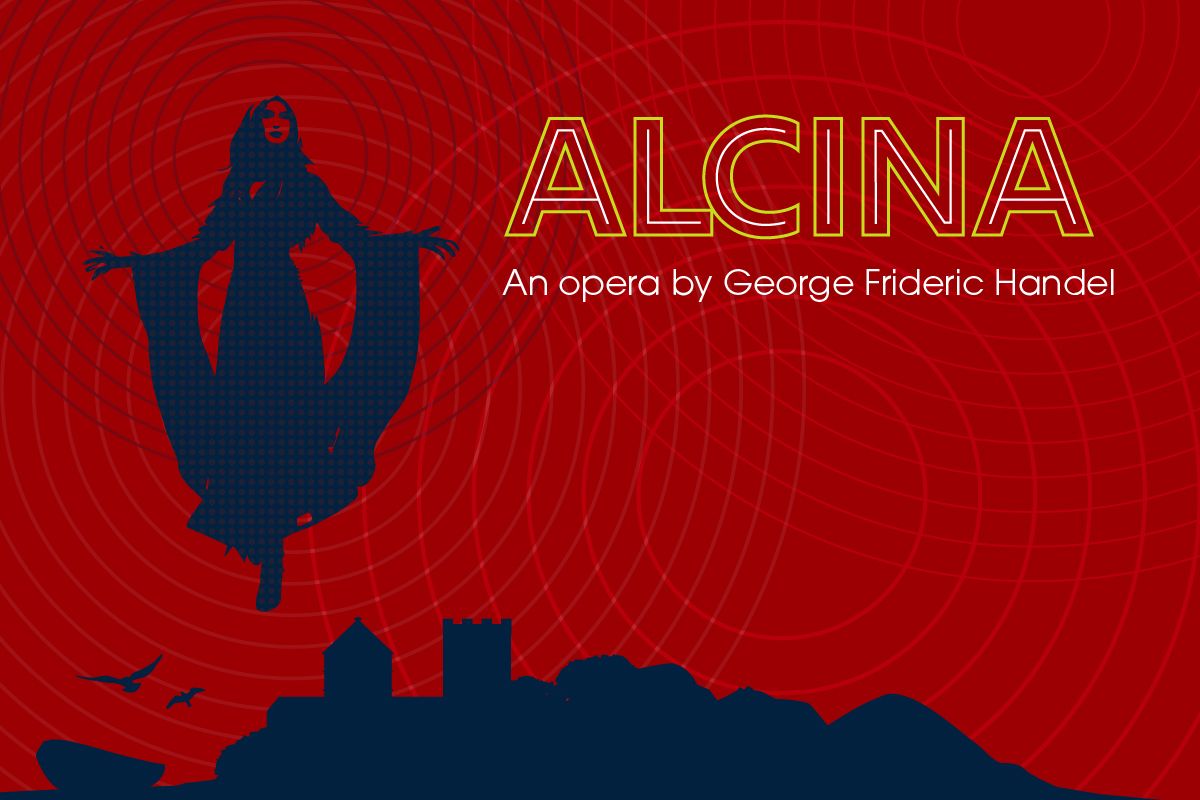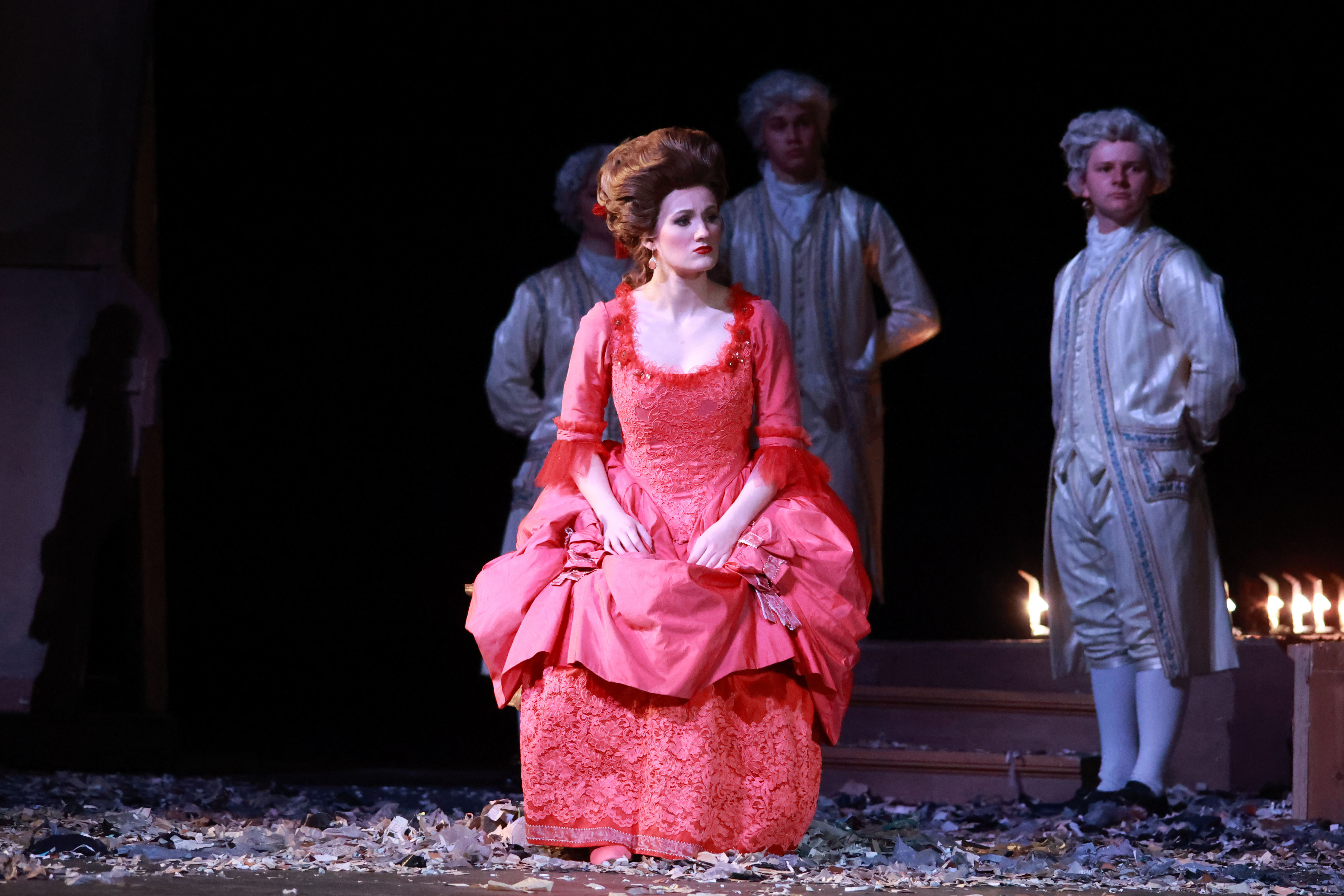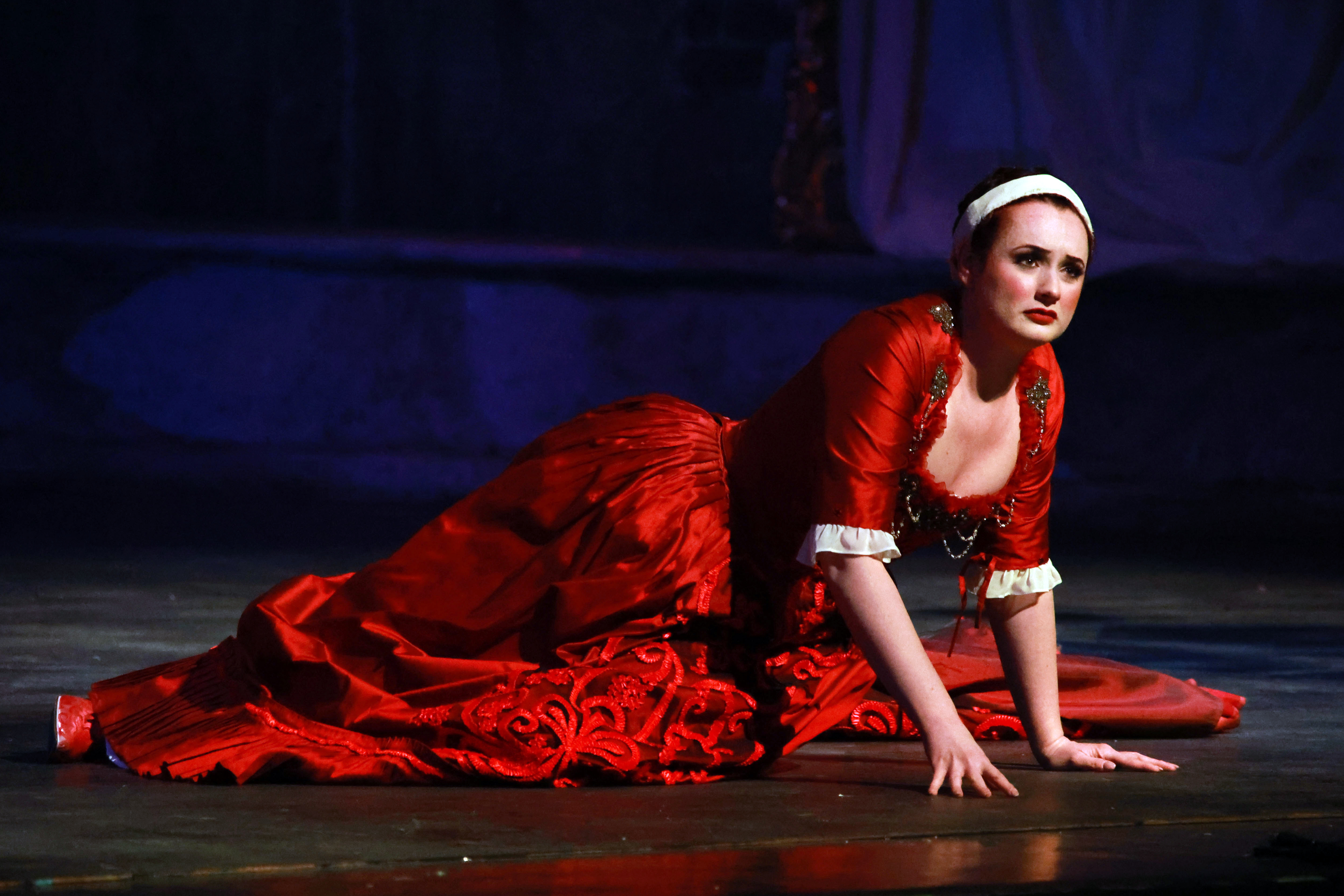Macey Rowland: My name is Macy Rowland, and I am singing the role of Alcina.
Emma DiSanto: My name is Emma DiSanto and I'm singing the role of Morgana.
Aaron Cain: Now you are part of the same cast, am I correct?
Macey Rowland: Yes.
Emma DiSanto: Yes.
Aaron Cain: You are each other's Morgana and Alcina.
Macey Rowland: We are sisters.
Emma DiSanto: Mm-hmm.
Aaron Cain: So what's that been like for you as two people, as two students, to develop that dynamic where there is definitely an evil person and a good person, broadly speaking, but there are also two sisters with history who do care about each other, or at least did?
Macey Rowland: I think that it's easy to label and tag as good and bad, but I think what you'll find in Alcina—not the character, the show—is that there's a lot of nuances to each character. So while there is certainly a more villainous theme to Alcina’s character, she has those moments of tenderness, of love, and I think she leaves you wondering: Is it genuine love? Is it control? Is it narcissism a little bit sprinkled in there? There's a whole variety of psychology, really, with this show. And that's just with my own character. I'm sure that's the case for everybody else, too.
Emma DiSanto: Morgana definitely feeds off of what Alcina gives her because she's, in my eyes, next in line. She's learning a lot of these behaviors of, “how I can manipulate men who enter our island?”
Macey Rowland: And it leads you to wonder what maybe happened in their childhood that made them so similar in these ways, in their actions.
Aaron Cain: When it comes to mounting a production like this, it seems to me that there are these layers of remove between you and a grounded, fully-realized character that you can act, because you've got musical duties that you have to perform in this. You have the remove of heightened drama, and you have additional remove of an opera that is older in its cultural language and its musical language. What's it been like working through those challenges, those things that can come between you and an audience?
Macey Rowland: It is a challenge, for sure, because if you go in and sing exactly what's on the page, everything straightforward, you're not telling a story. And so the secco recitative—where you just have a cord underneath you from a harpsichord and then you're singing on top of that—it almost has to become more like speech. Not almost, it does have to become speechlike. And not all heavy vibrato every time, there's some straight tone here. There's emphasis on certain words and certain parts of the phrase. I think that's really the key to making it come alive, rather than be dry.
Emma DiSanto: Yeah, recitative, especially in Handel, I mean, that is where the storyline is, and that's not always going to be said in the Aria. The aria is the one that makes you shine, of what that character is feeling in that moment, but the recitative, everything matters. The inflection of how you say it. Perhaps you're manipulating different voices to maybe mock someone. So I think that's something that a lot of singers do struggle with early on, and then it's always going to be a constant battle. But it's such a fun thing when you really lock in on it.
Macey Rowland: This opera—it's obviously a Baroque opera—it feels ahead of its time. Musically. There are certain areas like Ah, mio cor. You would think it was Bellini. Very lyrical and just gorgeous. And then, even some of the ideas in the show: a strong female lead who uses men and discards them and turns them into animals and rocks and trees…
Emma DiSanto: Mm-hmm.
Aaron Cain: Yeah.
Macey Rowland: …and whatever ,on the island. I think that's the biggest thing that struck me when I started familiarizing myself with the show, was that it seemed ahead of its time.
Emma DiSanto: I think the production that we have, when it was first introduced to all of us…I was a little lost into it, thinking it was going to be something super mythical and kind of out of this world, maybe something that we see in fiction books, and things like that. But the way that it's kind of in the theater—how the whole facade is slowly crumbling—is so relatable, I think, to any person who enjoys the arts because they get an idea of, “oh, here's what it's like being behind stage.”
Macey Rowland: As the show progresses and each act continues, the facade slowly crumbles away. And I won't tell you how so, that we can leave some mystery. You definitely want to come see it. It’s very intriguing and striking.
Aaron Cain: Macy Rowland, Emma DiSanto, thank you so much for speaking with me today.
Macey Rowland: Thank you for having us.
Emma DiSanto: Thank you for having us, yes.
Aaron Cain: IU Jacobs School of Music Opera Theater presents Alcina by George Frideric Handel this weekend, Friday, February 7th and Saturday, February 8th at 7:30 PM at the Musical Arts Center. I've been speaking with the performers playing Alcina and Morgana in Saturday night's show: sopranos Macy Rowland and Emma DiSanto. More information at operaballet-dot-indiana-dot-e-d-u. for WFIU Arts. I'm Aaron Cain.









